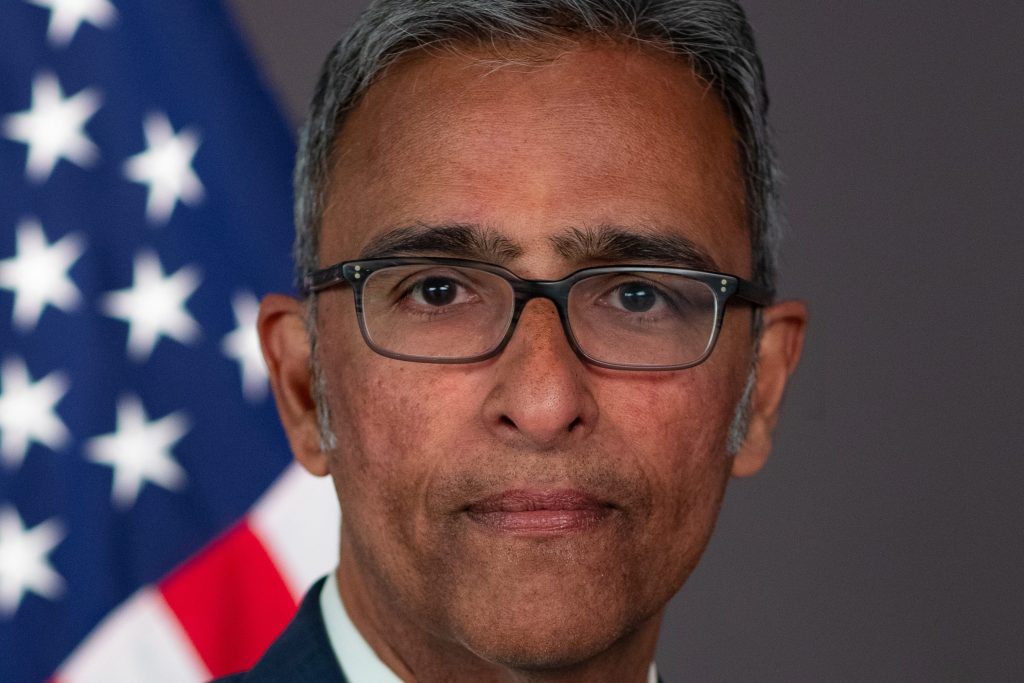The SEC just announced that it filed 583 total enforcement actions in fiscal year 2024 while obtaining orders for $8.2 billion in financial remedies, the highest amount in SEC history. That’s two-thirds more than what was collected in fiscal year 2023.
Just over half that amount (56%) came from the agency’s securities fraud settlement with Do Kwon’s crypto firm, Terraform Labs.
The record penalty collection and busy agency agenda over the past year – from rulemaking to enforcements – might lead you to believe the total number of cases was also at all-time high. But there was a notable decline (26%) from the previous year, as noted below. And lest we forget that fiscal year year 2019 (when Republican Jay Clayton was the SEC Chair) saw 92 actions.
But it was a busy time period for the agency’s enforcement team. The SEC’s announcement of these results made it clear that its overriding messages was that this: “The Commission saw market participants respond to its efforts to promote culture of proactive compliance.”
Key takeaways
Some notable numbers from the announced results are as follows:
- The 583 enforcement actions represent a 26% decline in total enforcement actions compared to fiscal year 2023.
- Of those cases, the SEC filed 431 “stand-alone” actions, which was 14% less than in the prior fiscal year.
- And it filed 93 “follow-on” administrative proceedings seeking to bar or suspend individuals from certain functions in the securities markets based on criminal convictions, civil injunctions, or other orders, which was 43% less than the prior fiscal year.
- The SEC brought 59 actions against issuers who were allegedly delinquent in making required filings with the SEC, which represented a decrease of 51%.
- The $8.2 billion in financial remedies consisted of $6.1 billion in disgorgement and prejudgment interest, also the highest amount on record, and $2.1 billion in civil penalties, the second-highest amount on record.
- In terms of allegations made against public companies and subsidiaries, issuer reporting disclosure was the overwhelming one (41%), with specific broker-dealer-based rule violations coming in second (29% – a lot of it from the off-channels comms cases) and investment adviser/investment company ones (13%) next. The Foreign Corrupt Practices Act got 3% of the total.
- The SEC obtained orders barring 124 individuals from serving as officers and directors of public companies, the second-highest number of such bars obtained in a decade.
Cop on the beat
The SEC brought a number of sweep enforcement actions, and none more than in the off-channel communications arena; 22 of the 38 sweep-related actions fell in this category.
“The Division of Enforcement is a steadfast cop on the beat, following the facts and the law wherever they lead to hold wrongdoers accountable,” said SEC Chair Gary Gensler. “As demonstrated by this year’s results, the Division helps promote the integrity of our capital markets to benefit investors and issuers alike.”
“In fiscal year 2024, the Division continued to vigorously enforce the federal securities laws by recommending to the Commission high-impact enforcement actions addressing noncompliance throughout the securities industry and resulting in robust financial remedies,” said Sanjay Wadhwa, Acting Director of the SEC’s Division of Enforcement.
Wadhwa emphasized that across the spectrum of businesses, many stepped up efforts to self-report, remediate, and meaningfully cooperate with SEC investigations.
“What our numbers do not reflect, however, are countless investigations that may not have resulted in an enforcement action for evidentiary or other reasons, or where we declined to pursue an enforcement action, but that shined a spotlight on potentially problematic conduct and caused responsible market participants to cease engaging in it,” Wadhwa said.
Money to victims
The SEC announcement focused on the threats presented by such things as misstatements regarding artificial intelligence, fraudsters using social media to perpetuate relationship scams, and more, while maintaining a focus on evergreen investor risks such as material misstatements, deficient internal controls, and major gatekeeper failures, the SEC said.
In fiscal year 2024, the SEC distributed $345m to harmed investors, marking more than $2.7 billion returned to investors since the start of fiscal year 2021.
The SEC also received 45,130 tips, complaints, and referrals in fiscal year 2024, the most ever received in one year, including more than 24,000 whistleblower tips, more than 14,000 of which were submitted by two individuals. The SEC issued whistleblower awards totaling $255m.
Rewarding reporting
In fiscal year 2024, market participants including public companies, investment advisers, and broker-dealers self-reported or remediated securities law violations or otherwise cooperated meaningfully with the Enforcement Division’s investigations, the SEC said, “answering the Division’s call to practice a culture of proactive compliance.”
The SEC’s emphasis on it approach at rewarding cooperation is reflected in the numbers: In fiscal year 2024, 77 public companies and subsidiary firms (75%) had cooperation noted in their settlements, which was the highest since fiscal year 2019 when there that number was 84 (77%). Five percent of the 75% did not pay a monetary settlement.
A shift in outcomes is also reflected in the settlements not involving a monetary fine; that number reached 15% in fiscal year 2024, thanks to businesses cooperating in timely and fulsome ways – a 6% increase over the average between fiscal years 2015 and 2023.
Rewarding self-reporting and cooperation included cases involving a range of alleged violations, such as material misstatements, fraud, recordkeeping violations, and controls failures related to cybersecurity.
Off-channel comms cases
The SEC brought a number of cases against regulated entities, including broker-dealers, investment advisers, and credit ratings agencies, instructing them to better comply with the recordkeeping requirements of the federal securities laws.
“Compliance with those requirements is essential to investor protection and well-functioning markets,” was the oft-repeated message in those cases.
In fiscal year 2024, the Commission brought recordkeeping cases resulting in more than $600m in civil penalties against more than 70 firms, including the Commission’s first cases charging recordkeeping violations against municipal advisors.
Since December 2021, the initiative has resulted in charges against more than 100 firms and more than $2 billion in penalties.
Marketing rule
The Enforcement Division also pursued investigations into non-compliance with its Marketing Rule, resulting in settled charges against more than a dozen investment advisers.
(The agency’s Examinations division had previously warned us that it was increasing its focus on Marketing Rule–related infractions in its examination priorities report, issued in late 2023 with a look toward 2024.)
The firms were charged for advertising hypothetical performance to the general public without adopting and implementing policies and procedures reasonably designed to ensure that the hypothetical performance was relevant to the likely financial situation and investment objectives of the advertisement’s intended audience; using untrue or unsubstantiated statements of material fact or testimonials, endorsements, or third-party ratings that lacked required disclosures; and advertising misleading performance that was not fair and balanced.
Whistleblower protection cases
In fiscal year 2024, the SEC brought a series of settled enforcement actions to address violations of the Dodd-Frank whistleblower protection rule, which prohibits market participants from taking any action to impede would-be whistleblowers from contacting the SEC. Specifically, seven actions against public companies and subsidiaries were brought for violations of this rule in fiscal year 2024, up from three in 2023.
These included where firms purported to limit customers’ ability to voluntarily contact the SEC or required employees to waive the right to a possible whistleblower monetary award. The actions included an $18m civil penalty against JPMorgan, the largest penalty on record for a standalone violation of the whistleblower protection rule.
Disclosures of holdings and transactions by insiders
The federal securities laws require certain insiders and market participants to disclose their securities holdings and transactions, and in fiscal year 2024, the SEC announced settled charges against more than two dozen entities and individuals for failures to report information about their holdings and transactions in public company stock in a timely fashion. (Or they were charged with contributing to filing failures by their officers and directors.)
The SEC also settled charges against 11 institutional investment managers for failing to disclose certain securities holdings in reports they were required to file because they have discretion over more than $100m in certain securities.
Risk from emerging tech
AI
Fiscal year 2024 saw heightened investor risk from emerging technologies and cybersecurity incidents and from market participants using social media to exploit elevated investor interest in emerging investment products and strategies, the SEC said.
The agency’s enforcement activity kept pace, investigating noncompliance and false or misleading disclosures involving artificial intelligence, social media, cybersecurity, crypto, and more. In the area of artificial intelligence (AI), the SEC charged QZ Asset Management for allegedly falsely claiming that it would use its proprietary AI-based technology to help generate extraordinary weekly returns while promising “100%” protection for client funds.
And it settled charges against investment advisers Delphia and Global Predictions over making false and misleading statements about their purported use of AI in their investment process.
Cybersecurity
In the area of cybersecurity, the SEC sent the message to registered firms that they must disclose materials breaches. For example, the agency settled charges against The Intercontinental Exchange, Inc. and nine wholly owned subsidiaries, including the New York Stock Exchange, for failing to inform the SEC of a cyber intrusion in a timely manner as required by Regulation Systems Compliance and Integrity or “Reg SCI.”
And the SEC settled charges against R.R. Donnelley & Sons for disclosure and internal control failures relating to cybersecurity incidents.
Crypto
In the digital asset space, the agency brought many fraud, inadequate disclosure and registration-related charges, including charges against Silvergate Capital for false and misleading disclosures to investors about the strength of the Bank Secrecy Act/Anti-Money-Laundering compliance program and the monitoring of crypto customers, including FTX, by its wholly owned subsidiary, Silvergate Bank.
Another example: Settled charges against Barnbridge DAO, a purportedly decentralized autonomous organization, for failing to register its offer and sale of structured crypto assets offered and sold as securities.
Gatekeepers
In fiscal year 2024, the Division investigated wide-ranging violations by gatekeepers, resulting in, among other actions, charges against audit firm BF Borgers for a massive fraud affecting more than 1,500 SEC filings – one of the largest ever wholesale failures by a gatekeeper – and settled charges against audit firm Prager Metis for hundreds of auditor independence violations.
Market abuse and safeguarding MNPI
The Division investigated market abuse and potential abuse of material nonpublic information (MNPI) in fiscal year 2024, and it said it did so by using advanced data analytics and technology.
The Division’s investigations resulted in enforcement actions addressing a range of violations, including settled charges against Morgan Stanley and the former head of its equity syndicate desk with a multi-year fraud involving the disclosure of confidential information about the sale of large quantities of stock known as “block trades.”
And, after an eight-day trial in SEC v. Panuwat, the jury found the defendant liable for insider trading in the first trial based on alleged insider trading in a peer company.
The SEC’s complaint alleged that Panuwat used nonpublic information about an impending announcement of Pfizer Inc.’s acquisition of his then-employer, Medivation, Inc, to trade in another correlated stock ahead of the news for his own enrichment. Rather than buying the securities of Medivation, Panuwat used the confidential information to purchase short-term, out-of-the-money call options of another comparable public company, Incyte Corporation.
In this groundbreaking case, the SEC successfully pioneered a legal theory referred to as “shadow” insider trading. The concept extends traditional insider trading paradigms to situations where an individual, privy to MNPI regarding one company, capitalizes on that knowledge to trade securities in another company.













